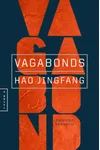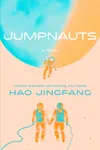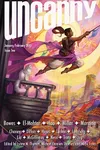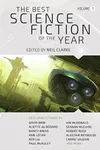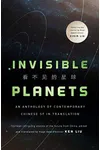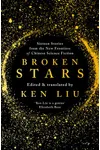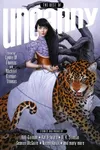Picture a Chinese storyteller who folded an entire city into a mind-bending sci-fi tale—meet Hao Jingfang! Born in Tianjin in 1984, this physicist-turned-economist has become a trailblazer in Chinese science fiction, weaving stories that tackle inequality and human resilience. Her Hugo Award-winning novella Folding Beijing made her the first Chinese woman to claim the prestigious prize, cementing her as a global literary star.
With a knack for blending scientific rigor with social commentary, Hao’s works invite readers to explore futures where technology and humanity collide. Let’s dive into her journey, from a curious student to a celebrated author whose stories resonate worldwide.
The Making of Hao Jingfang
Hao Jingfang grew up in Tianjin, China, with a passion for science sparked by reading 100,000 Whys, a popular educational magazine. Her academic path led her to Tsinghua University, where she studied physics before pivoting to economics, earning a doctorate in 2013. This blend of hard science and social science shapes her writing, grounding her speculative worlds in real-world issues like economic disparity. As a high school student, she won first prize in the 2002 New Concept writing competition, hinting at the literary talent that would soon shine.
While working as a researcher at the China Development Research Foundation, Hao began crafting stories on the side. Her dual career—economist by day, writer by morning—gave her a unique lens on China’s rapid development, fueling her imaginative yet grounded narratives.
Hao Jingfang’s Unforgettable Stories
Hao’s breakthrough came with Folding Beijing (2014), a Hugo Award-winning novella that imagines a future Beijing divided into three time-shared spaces based on class. The poor live in cramped, nocturnal slums, while the elite enjoy sunlight and space. Translated by Ken Liu, this poignant tale critiques inequality with a deceptively simple human story, earning praise for its emotional depth and social insight.
Her novel Vagabonds (2020) explores a Martian colony’s cultural rift with Earth, following teenagers caught between two worlds. This sprawling, introspective work delves into identity and freedom, showcasing Hao’s ability to balance big ideas with personal journeys. Jumpnauts (2024) takes a wilder turn, blending cosmic adventure with philosophical musings, while Invisible Planets (2013), a short story, draws inspiration from Italo Calvino, spinning tales of alien worlds that reflect Beijing’s diversity.
Hao’s style is both cerebral and heartfelt, often using near-future settings to mirror China’s social challenges. Her characters, from waste workers to dream-hackers, navigate dystopian systems with quiet resilience, making her stories universally relatable yet distinctly Chinese.
Why Hao Jingfang Matters
Hao Jingfang has redefined Chinese science fiction, joining luminaries like Liu Cixin in bringing the genre to global audiences. Her Hugo win in 2016 marked a milestone, proving Chinese sci-fi could rival Western classics. By tackling themes like class division and technological ethics, she offers a window into China’s complexities, challenging stereotypes and sparking dialogue about progress and equity.
Beyond awards, Hao’s influence extends to inspiring young writers and readers, particularly women, in a genre often dominated by men. Her work, translated into multiple languages, bridges cultures, inviting readers to question the systems shaping their world. As Chinese sci-fi enjoys a golden age, Hao remains a vital voice, blending hope and critique in stories that linger.
About Hao Jingfang
- Born: July 27, 1984, Tianjin, China
- Key Works: Folding Beijing, Vagabonds, Jumpnauts, Invisible Planets
- Awards: Hugo Award for Best Novelette (2016), First Prize in New Concept Writing Competition (2002)
- Fun Fact: Hao founded WePlan, a project to prepare youth for an AI-driven future.
Ready to explore Hao Jingfang’s thought-provoking worlds? Snag Folding Beijing or Vagabonds and dive into her visionary sci-fi today!
